|
 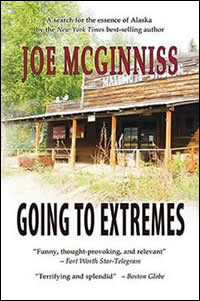     |
|
EXTREMES
(1980) McGinniss headed north to see what was left of the Last Frontier. He discovered, as one reader put it, “mind-bending contradictions”: an ugly underbelly of greed, waste, addictions, and racism that contrasted with the state’s vast, wild natural beauty and its people’s open, independent spirit. Through a colorful series of encounters with bush pilots, boomers, park rangers, bartenders, teachers, journalists, waitresses, politicians, Natives, and a legion of Outsiders looking to get rich quick, McGinniss captures a unique place at a tumultuous time. Going to Extremes is a poignant, funny, and sometimes shocking portrait of a great land in the grip of irreversible changes, a time capsule of personal journalism even more valuable for readers today than it was when first published in 1980.  “The richness of McGinniss’s reporting accumulates powerfully…his writing glows invitingly—just as a warm fire does when the temperature outside in Fairbanks is 49 below. Powerful…poignant….hilarious.” —Newsweek “The richness of McGinniss’s reporting accumulates powerfully…his writing glows invitingly—just as a warm fire does when the temperature outside in Fairbanks is 49 below. Powerful…poignant….hilarious.” —Newsweek  “Enthralling…McGinniss writes with the uncensored, sensuous perceptions of a naturalistic novelist.” — Los Angeles Times Book Review “Enthralling…McGinniss writes with the uncensored, sensuous perceptions of a naturalistic novelist.” — Los Angeles Times Book Review  “Perceptive and affecting…a different sort of work from John McPhee’s Coming into the Country. It is a grittier, harder-edged, and more complete picture of what is happening in the ‘real’ Alaska.” — Philadelphia Inquirer “Perceptive and affecting…a different sort of work from John McPhee’s Coming into the Country. It is a grittier, harder-edged, and more complete picture of what is happening in the ‘real’ Alaska.” — Philadelphia Inquirer  “Fine reading…thick with whole people, exotic landscapes, the nervous and constant curiosity of an adventurer who knows that the essence of a place is more likely found while chatting in barrooms than while viewing the wondrous works of man and nature.” —The Nation “Fine reading…thick with whole people, exotic landscapes, the nervous and constant curiosity of an adventurer who knows that the essence of a place is more likely found while chatting in barrooms than while viewing the wondrous works of man and nature.” —The Nation  “A brilliant book. Mandatory for anyone who wants a sense of what contemporary life in Alska is like. My opinion does not sit well with the locals. No! they say, McGinniss writes only about the sensational. Alaska is a sensational place, I reply. He’s a scandalmonger, they say. Alaska is a scandalous place, I say; McGinniss tells the truth.” — Edward Abbey “A brilliant book. Mandatory for anyone who wants a sense of what contemporary life in Alska is like. My opinion does not sit well with the locals. No! they say, McGinniss writes only about the sensational. Alaska is a sensational place, I reply. He’s a scandalmonger, they say. Alaska is a scandalous place, I say; McGinniss tells the truth.” — Edward Abbey  “The best nonfiction of the year…One of the most terrifying and splendid pieces of prose in memory.” —Boston Globe “The best nonfiction of the year…One of the most terrifying and splendid pieces of prose in memory.” —Boston Globe  “Joe McGinniss did not set out to judge or explain, but only to find out what Alaska is. He has succeeded, for almost everything he says is news.” –Paul Theroux, New York Times Book Review “Joe McGinniss did not set out to judge or explain, but only to find out what Alaska is. He has succeeded, for almost everything he says is news.” –Paul Theroux, New York Times Book Review

|
|
![]()
![]()
![]()
![]()
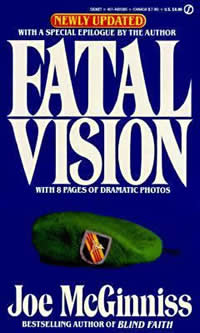
![]()
![]()
![]()
![]()
![]()
![]()
![]()
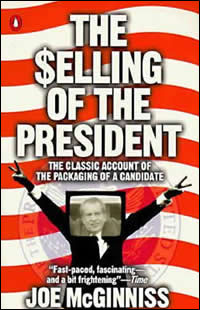
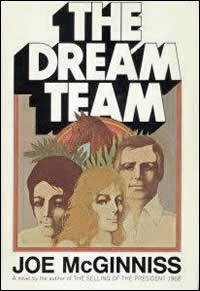
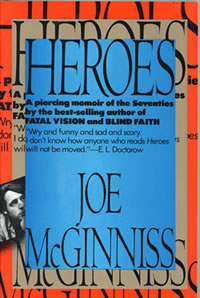

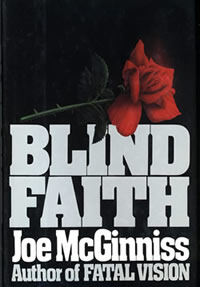
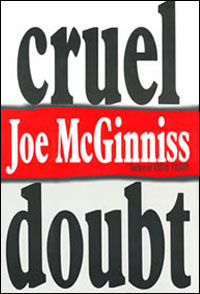
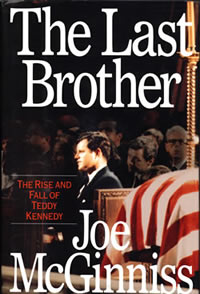
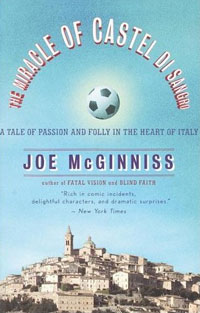
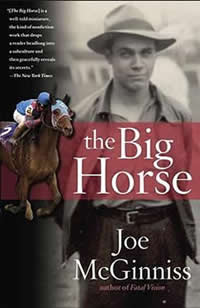


[…] her skewed perception of my relationship with Jeffrey MacDonald–the subject of my 1983 book, Fatal Vision–to support her bizarre hypothesis that “Every journalist…knows that what he does is morally […]
[…] “Going to Extremes” is the classic “pipeline era” book. It’s written by an outsider, but that’s sort of the point. Joe McGinniss describes the insanity of the multi-billion dollar pipeline project and the impact of new money and new people arriving in a tidal wave. It likely takes a number of detours from the exact truth, but you just have to take it all with a grain of salt. It asks a lot of questions about what defines the “Real Alaska.” It’s a question that residents of the state are constantly negotiating. […]
[…] has written 12 books in all, mostly well-known for their political-related […]
[…] has written 12 books in all, mostly well-known for their political-related […]